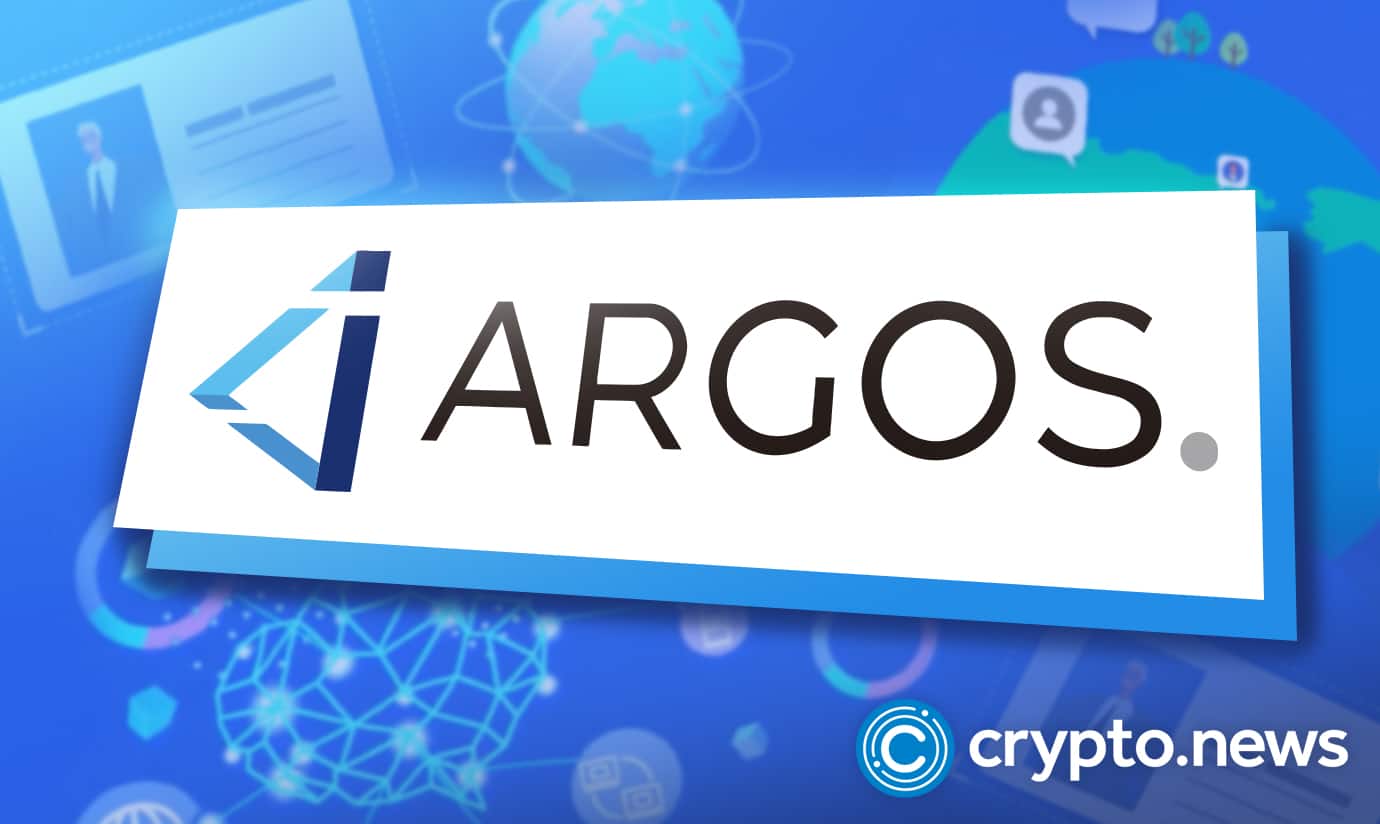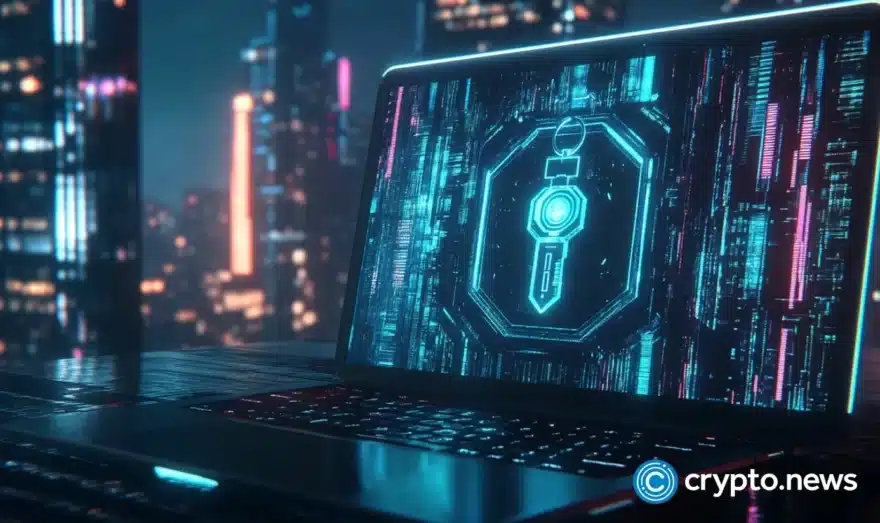Argos: Blockchain and Web3 KYC Provider

Identity verification is paramount in a world where you can trade with anyone, anywhere across the globe, using the internet. Businesses and individuals need to be aware of the persons they are doing business with to avoid fraud, theft, money laundering, and terrorist financing cases. However, since people from very different ends of the globe can trade, there’s always an element of complexity associated with the verification procedures. That’s where Argos comes in handy.
What Is the Argos Network? The History
Argos defines itself as a KYC service provider primarily for blockchain web 3.0 projects, allowing you to get the identity of anyone, anywhere and anytime. This platform merges various identity verification procedures focused on different parties, including individuals, businesses, organizations, and companies.
The creator of this platform, Wonkyu Lee, ventured into the blockchain tech space in 2018 designing Argos to offer an innovative digital ID verification system. The project’s team developed a contactless verification system to foster security and ease of onboarding.
The team named this project Argos KYC, a name originating from Greek mythology referring to a 100-eyed giant. As such, this project aimed to curb money laundering, theft, and fraud in the web 3.0 landscape.
Originally, the network was founded in South Korea in 2018 and soon began service in several countries. However, due to plans for global expansion, the team set up a new establishment in the US in 2021.
The web 3.0 service provider is yet to receive the traction it deserves despite offering vital services for its users. However, this guide looks into Argos, how it works, and the services it offers.
How Does Argos Work? The Technology
The developers of this platform created a technology that would be seamlessly easy to use for anyone. However, creating a single piece of technology to deal with all the services, while ideal, is impossible. Therefore, Argos combined different tools and technologies to create a fully functional network.
This technology, coupled with national identification systems (IDs) from different countries, makes it possible to verify anyone’s identity anywhere. Understanding the role of all the technologies used in this platform helps us understand how the Argos network works. The technologies involved are;
- OCR technology for know-your-customer (KYC)
- Liveness detection system
- Face verification system
- Digital Argos ID for web 3.0
Optical Character Recognition Technology for KYC
The Argos network leverages Optical Character Reader (OCR), which brings its KYC services to life. OCR is a technology designed to help convert texts on images to machine-readable formats. OCR converts any photo of a document, scanned documents, and even photos of scenes with any form of text, whether handwritten or typed, into machine-encoded texts.
When you scan or take a photo of a document, the computer will always save the document in a non-editable form. However, the OCR technology will convert the images into a machine-readable form making the documents machine editable. So, what does this mean?
Argos’ OCR tech can scan the details on ID cards and other identification documents and convert them into machine-readable. As such, Argos can verify details found on national ID cards from different countries.
For proper functioning, Argos introduces the OCR ID template. This template has a specific role, categorizing all the data extracted via the OCR. Therefore, combining the OCR with the template helps extract and sort all the data into designated categories.
The process of OCR data extraction is simple. The user takes a photo of their ID card or other identification documents. The OCR system autonomously extracts the data found on the identification documents. In the final step, the template will categorize the OCR ID template.
Argos notes that their OCR technology can verify over 1600 different types of IDs from over 210 countries. As such, persons in most parts of the globe can quickly get customers’ identity verifications whenever, wherever. Interestingly, you can find all the names and types of documents supported by Argos on their web page.
Furthermore, Argos installed an expert review system that can verify over 4000 ID-related documents. The OCR technology makes identity verification an effortless task by simply bringing the ID details to machine language, simplifying verifiability.
Liveness Detection Technology
Another bit of technology used by the Argos network for verification purposes is liveness detection mechanisms. Liveness detection, as the name suggests, refers to detecting and verifying a person’s identity in real-time. A computing device uses computing vision technology to detect the presence of an actual user and not just a representation of the user, like pictures or fake videos.
Argos implanted a passive liveness detection tool designed to check whether the KYC process completed is done by an actual person in real-time. Argos claims to be capable of doing a passive liveness detection test using a single selfie. The liveness checks help authenticate the verification process and reduce or curb the chances of forgery attacks.
So, how does Argos’ liveness detection technology function? Essentially, the network will collect selfie pictures when trying to complete facial verification. The Argos network then passes the selfie image to an AI, which analyzes the picture to identify the unique facial characteristics of the photos submitted.
Face Verification
Part of the technology backing Argos is AI face verification. Remember, at the liveness detection above, the user must submit a selfie, and an AI analyzes and saves each individual’s facial structure.
When it comes to verification, the Argos-based AI will compare the facial structure in the ID card and live selfie to know if it’s dealing with the same person. Argos claims that the result of the facial scan is always 99.5% accurate, meaning there is close to no chance of identity fraud.
Remember, when KYCing, the user takes a photo of the ID card and submits it to the AI tech. The ID picture will remain the point of reference when completing identity verification after submitting the selfie. The three technologies discussed can only operate with utmost efficiency if they interact.
What Problems Does Argos Solve?
Undoubtedly, this Argos platform came to bring solutions to the web 3.0 landscape. However, what are some of the problems Argos solves?
- Identify your customers — As mentioned above, web 3 involves doing business with people across the globe. However, there is always a massive problem identifying business compatriots. With the KYC protocols instilled by Argos, it’s possible to know the person you are trading with; hence there’s more trust.
- Identity theft and forgery — The problem of identity fraud and forgery has been menacing the digital landscape for quite a while, and web 3.0 projects are among the losers. The KYC, face detection, and liveness features help curb identity thefts in the web 3.0 landscape.
- Money laundering risks — Since the blockchain landscape launched, many people, governments, and institutions have associated it with money laundering. Governments argue that the privacy of these digital assets is a problem that contributes to money laundering.
The above-mentioned are just a tiny part of the problems the Argos network is solving with its identity authentication. As such, business in web 3.0 can become more seamless.
What Services Does Argos Offer?
Well, we have already explored Argos’ identity verification tool. However, using the tools, Argos offers different services benefitting different parties. Among the services offered currently include;
For Individual: Know Your Customer (KYC)
The most paramount service offered by the Argos network for individuals is KYC. The original idea behind Argos’ creation was developing a network that makes it easy to identify any person you transact with. This service enables you to get the identity of anyone you are trading with instantly.
To increase the performance of the KYC, Argos conducts not only proof of identity but also proof of address. Proof of address involves checking the documents that prove where the customer resides. The documents in question, in most cases, involve bank statements, tax bills, utility bills, and many more. Proof of address is essential in individual KYC, as it assures the transacting parties of security.
For Business: Know your Business (KYB)
Argos does not just focus on individuals but also businesses through its KYB services. KYB involves verifying the legal status of a business in a jurisdiction. Checking the legal status of a business means ensuring there are authentic business licenses and relevant compliance certificates.
Argos instills systems that simplify the KYB processes, ensuring that any business operating with them is authentic. Among the relevant checks done by Argos include the following;
- Identifying the ultimate beneficial owner (UBO) — UBO is the person who benefits from the transactions made by the business.
- AML compliance checks — Argos looks into the business’s financial activities in depth to ensure there are zero money laundering risks. They also ensure the business complies with all the laws instilled in AML guidelines.
KYB enables business owners to build great partnerships through trust. The process of KYC is short, involving submitting the necessary documents and waiting for Argos to verify and send their report.
Business/Individuals: Scanning for Money laundering Risks
Although already mentioned lightly under KYB, scanning for money laundering risk is an independent service Argos offers. Money laundering is prevalent online today, and many governments accuse crypto of enabling the activity.
There is the problem of criminal activity funding. For instance, terrorists and kidnappers can use crypto and crypto-related services to obscure their transactions. In fact, in the past, there was a case where kidnappers demanded to receive a ransom in cryptocurrency. Argos aims to guarantee all its users’ safety from any money laundering risks.
Argos has an international database, constantly updated to ensure every detail checks out. Argos’ money laundering check system constantly follows risk profiles. The platform offers real-time AML reports on such risky profiles.
The Argos ID for web 3
Argos has another feature, the Argos digital identification system focused on web 3.0 projects. The ARGOS ID system makes the digital ID generation process quite simple, involving the ID document and selfie. It is simply a KYC-completed digital ID with a wallet address. Argos introduces a few features in the ID system, including;
- Single sign-on — The Argos ID system enables all the verified parties to access various services with one verification system.
- Instant verification — Another aspect of the digital ID system is verification. The Argos ID helps make verification instantaneous and hence usable with immediate effect.
- Wallet address stored — The digital identification system instills a wallet address. This means combining personal investors’ information with the details about their wallets.
- Supports multi-protocol system — The Argos ID system enables connectivity to multiple protocol-based wallets.
- Data sovereignty — The users of the Argos network, those leveraging the ID verification system, have all the sovereignty to control their data. Argos does not control your data.
- Minimum cost — Argos charges very fair prices for their digital ID system. Their system eliminates duplication of processors when customers try to complete multiple KYCs for various services. So, the payment burden is not for KYC but for data authentication. KYC-rejected users don’t suffer massive price burdens.
- Reusable ID — Network participants can use the Argos ID multiple times. In web 3, most exchanges have their internal KYC. As such, a user must go through each of the KYC processes. With the Argus ID, you take one verification and are good to go in using different platforms.
- Massive coverage — Argos ID is available in over 210 countries globally. It supports wallets hosted in various blockchain networks, including Ethereum, Solana, Binance smart chain, Polygon, and Klaytn.
- Dashboard — Finally, the Argos ID has an internal dashboard enabling users to constantly check AML, KYC, and other wallet address data.
Argos ID for VASPs
The Argos ID system is also quite helpful to VASPs. But why do VASPs need an Argos ID? Well, VASPs are supposed to adhere fully to travel guidelines set by different regulatory bodies. The FATF is by far the most popular travel rule affecting VASPs, but there are others from the EU and even South Korea.
The popular FATF rule requires VASPs to get the necessary origination and beneficiary info on digital asset transfers. As such, all qualifying wire transfers must contain details like the following;
- The originator’s name
- Account number of the originator
- Address of originator
- Name of beneficiary
- Account number of beneficiary
Argos ID allows an easy one-click authentication system for VASPs. As such, VASPs can easily garner all the data they need.
Travel Rule Compliance for Unhosted Wallets
Well, the anonymity problem associated with digital assets already creates a regulatory problem. KYC solves the problem by exposing the wallet owner. Furthermore, the travel rules regulate and collect details such as the beneficiary’s name and wallet address.
But what about non-hosted/private wallets? It’s become almost impossible to track the transfers associated with non-custodial wallets. Therefore, Argos’ newest offering makes the unhosted wallets compliant with the required guidelines. Essentially, the unhosted wallets are connected to the Argos ID network, making compliance with necessary regulations automatic.
What Are the Benefits of Argos Network?
There are, of course, several benefits associated with this decentralized web 3.0 project. The benefits include the following;
Multilingual Platform
The Argos network offers services in many languages to enhance convenience for its average users. Reports indicate that the platform currency supports over 94 different languages.
Using Technology for Service Delivery
As already seen, this platform combines a wide range of modern technologies with a mission to foster proper service delivery. The use of the OCR data extraction mechanism and selfie cameras for liveness checks proves that the network is advancing with modern tech. Such is the kind of platform you want when doing business.
Real-Time KYC Processing
While many projects offer KYC services, they mostly never use real-time biometric identification systems. However, Argos implants liveness checks when conducting KYC scans. Hence, anyone can onboard in real-time.
Global ID Support
The platform is global, as mentioned, and supported in over 210 countries. This global reach is suitable for anyone engaging with the Argos KYC platform. However, the platform recognizes identification documents like driver’s licenses, passports, and ID cards from all those 210 countries in Asia, Europe, North America, South America, and Oceania.
KYC and AML Services in One Platform
Argos offers KYC audits and AML-related services on the same platform. As such, customers can conveniently enjoy both services in the same dashboard.
Customer Support
Argos network has a helpdesk and customer support system where anyone can easily send requests and get services.
Final Word
Indeed, the digital landscape suffers from many illegal activities like money laundering, fraud, theft, and forgery. Such illegal activities make it extremely hard to have any form of trust when making trades online.
However, the Argos network vastly discussed above brings some solutions to the web 3.0 landscape. Argos focuses on offering ease in services like KYC, KYB, and even AML compliance. The technology at the heart of Argos is modern, combining OCR, Selfie, and liveness detections to ensure they get the most accurate identity of the customer.
VASPs are among the biggest benefactors of this platform. They can easily adhere to travel rules, garnering the necessary data in both hosted and non-hosted wallets.
Looking at their social network, it appears that Argos has still not attracted the traction it deserves. However, as the network continues to offer services, more VASPs and individuals might start using it which is why one should keep an eye on it.














